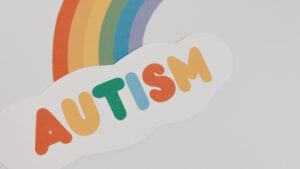30 Transformative Ways Counseling Can Help Kids
1. Identifying Root Causes.
Working with a counselor can help your child work to identify the underlying causes of behavioral challenges. Counselors can utilize therapy approaches such as CBT to understand the root issues, implement interventions, and address and manage the behaviors effectively.
2. Skill-Building Strategies.
Counseling teaches your child how to be their advocate with practical strategies to manage and modify their mindset and behaviors. These evidence-based methods empower your child to make positive choices and develop a sense of control over their actions.
3. Parental Guidance.
Parents can also benefit from working with a counselor. Your counselor can provide guidance on effective parenting strategies to reinforce positive behavior at home.
4. Safe Emotional Outlet.
Working with a mental health counselor provides a secure and confidential space for your child to express their emotions related to trauma.
5. Coping Strategies.
Counselors teach and support children in developing healthy coping strategies. These are used to manage the impact of trauma. These counseling strategies empower children to navigate challenges and build resilience in the face of adversity.
6. Restoring a Sense of Safety.
Through individual counseling, children work towards restoring a sense of safety and security. Counseling offers a sensory room to encourage kids to heal and move forward with a positive outlook on their future.
7. Addressing Learning Challenges.
The truth is that people learn differently. Counseling can identify and address learning challenges that may be hindering your child’s academic progress. Counselors utilize targeted interventions and support can be implemented to enhance a child’s learning experience.
8. Boosting Confidence and Self-Esteem.
How your child feels about themselves will directly impact their performance. Counseling helps your child to develop a healthy level of academic confidence. By addressing academic concerns and providing tools for success, children approach learning with a positive and empowered mindset.
9. Developing Study Skills.
Counseling can support your child in developing effective study habits, mindset, and time management skills. These foundational skills contribute to improved concentration, organization, and overall performance in and out of the classroom.
10. Communication Skills.
Counseling offers services aimed at enhancing children’s communication skills, enabling them to express themselves and build meaningful connections with others.
11. Conflict Resolution.
Counseling teaches children valuable conflict resolution techniques that they use in and out of the classroom. Counseling empowers your child to navigate disagreements respectfully and foster healthier relationships with their peers in the classroom, community, or on the sports field.
12. Building Empathy.
Through counseling, your child can develop empathy and understanding for their needs and hat of others. One key area of counseling is emotional intelligence. This can help your child in forming positive, supportive relationships in various social settings.
13. Identifying Triggers.
Counselors help children identify stressors, and anxiety triggers, and start to take the first step in developing effective coping techniques.
14. Mindfulness and Relaxation Techniques.
Does your child know how to go from an anxious state to calm and back in control? Counseling introduces children to mindfulness and relaxation techniques that can help with managing anxiety and promoting emotional regulation.
15. Encouraging Open Dialogue.
Kids must have a safe and secure space. Creating a space for open dialogue allows children to express their worries and fears. Counseling supports in alleviating the emotional burden and finding constructive solutions.
16. Expressing Grief Safely.
Santos Counseling provides a safe atmosphere for your child to express their grief and identify emotions surrounding loss. Counseling can play a crucial part in the healing process.
17. Understanding Emotions.
Counseling can assist your child in navigating complex emotions associated with grief, fostering emotional intelligence and resilience.
18. Building a Support System.
Through counseling, children learn to build a strong support system and gain the skills needed to include friends and family in their space of healing. This network is instrumental in the healing journey.
19. Positive Self-Talk.
Does your child practice positive talk? Do they know what positive talk sounds like? Counseling teaches children the power of positive self-talk by fostering a resilient mindset and helping them navigate challenges with confidence.
20. Goal Setting.
Through Counseling, your child can learn to set and work towards possible objectives, building confidence and providing a sense of purpose in what they are doing.
21 Embracing Resilience.
Parents experience excitement and satisfaction when they witness resilience in their child. Counseling has mental health counselors who aim to instill a sense of resilience in children, emphasizing that setbacks are a natural part of life. Let us help your child learn how to overcome difficulties and bounce right back into life.
22. Effective Communication Skills.
Counseling aims to create a constructive space focused on helping your child develop effective communication skills, laying the foundation for meaningful relationships with peers, family, and friends.
23. Empathy Development.
Through Counseling, your child can cultivate emotional intelligence, and learn to understand their emotions, and emotional regulation.
24. Conflict Resolution Strategies.
How does your child deal with conflict or difficult situations? Santos Counseling empowers children with evidence-based conflict resolution strategies, and teaches them how to navigate disagreements constructively.
25. Targeted Learning Strategies.
Our goal is to support your child in learning how they can understand their process of learning. Counseling identifies and addresses specific learning challenges, tailoring techniques to enhance a child’s learning experience and academic performance.
26. Self-Esteem Building.
Counseling focuses on supporting your child to feel confident when they are in the classroom face to face with a big exam.
27. Establishing Purpose.
Counseling assists children in learning how to connect to everyday purposeful objectives, such as getting their homework completed or studying for an upcoming quiz.
28. Early Intervention.
Counseling emphasizes the importance of early intervention. Parents can start early intervention by identifying differences in their children. Counseling supports kids with recognizing signs of depression and providing support to prevent further emotional pain.
29. Encouraging Open Dialogue.
Counseling can support your child in learning to understand their feelings (versus bottling them up). It’s okay to not be okay.
30. Holistic Mental Health Care.
Counseling takes a holistic approach to mental health care while remaining open to external methods such as medication. Our goal is to be here for you. Counseling tailors therapy plans to address the unique needs of each child dealing with depression. This personalized approach ensures targeted and evidence-based support.
Use the links below for more helpful reads on ways counseling helps kids:
Therapy Journal Prompts For Kids
- What is your favorite color to see when you are feeling sad?
- List two people that make you feel safe.
- What superpower would you want to have when you are feeling angry?
- What are other feelings that are hiding underneath when you feel angry?
- What is your favorite body part?
- What do you like about yourself?
- List smells that help you feel calm.
- When was the last time that you laughed? What was taking place?
- What are sounds that help you relax? Think about music or sounds in nature.
- Describe a fun day.
- What is your favorite book and why?
- Who is a book character that you relate to?
- Name three nice things that people have done for you.
- What are two foods you must have in your favorite meal?



